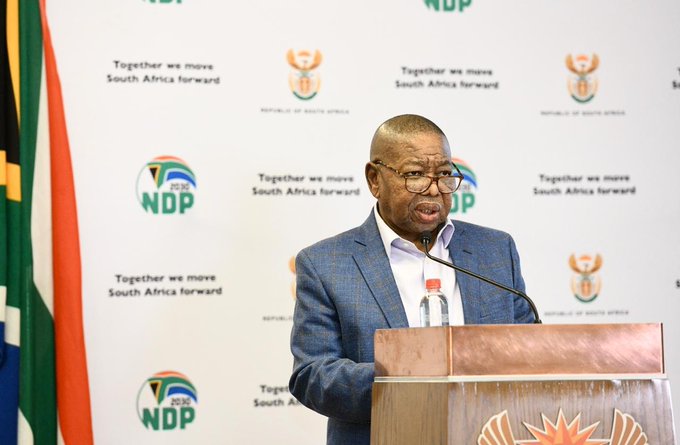Minister of Higher Education, Science, and Innovation Blade Nzimande presented the Department of Higher Education and Training Budget Vote 2021 to the National Assembly this week.
Nzimande said irrespective of the challenges the department had earlier this year, the National Student Financial Aid Scheme (NSFAS) funding has increased more than five-fold over the last six years.
He said in 2014 NSFAS funding sat at R5.9 billion and in 2020 is was at R34.7 billion.
“Irrespective of funding challenges, NSFAS funds have increased more than fivefold just in 6 years.
“In the current financial year, the 2021/2022 financial year, NSFAS funding is expected to reach more than R43 billion – a further increase of nearly R10 billion in just two years,” he said.
Nzimande said following the shortfall experienced by NSFAS earlier this year, his department reprioritised its budget to ensure that all deserving, NSFAS-qualifying students are able to receive funding for the 2021 academic year.
He said the budget for the post-school and training sector was just over R115 billion and that the budget allocated for the Technical and Vocational Education and Training (TVET) college sector is at R13 billion.
Nzimande said in support of the expansion of access to the post-school education and training (PSET) system, his department will award bursaries to PhD students, and will create a pipeline of postgraduate students.
He said his department will also place graduates and students in department-funded work preparation programmes in science, engineering, technology and innovation institutions in support of the initiatives towards ensuring the responsiveness of the PSET system.
“As a department, we remain committed to strengthening and developing the PSET sector by investing in infrastructure to provide quality teaching, learning and research and innovation spaces,” said Nzimande.
The Higher Education, Science and Innovation budget shows that R R115.596 868 billion has been allocated for the 2021/2022 financial year. Nzimande said this shows an annual average increase of 1,4% over the 2021 Medium Term Expenditure Framework (MTEF) presented earlier this year by Finance Minister Tito Mboweni.
Nzimande said R230.7 million has been allocated for career development systems, community education and training has been allocated R2.422 billion. Adding that R504 million would go for towards administrative responsibilities, as well as goods and services,” said the minister.
He said R324 million was redirected to Covid-19-related responses. Nzimande said the national system of education and innovation has also been affected by Covid-19 pandemic.
“The pandemic has changed life as we know it but has also taught us vital lessons. One of the lessons is that investing in Science is vital for South Africa’s future and development,” he said.
He said R9.546 billion has been set aside for investment in infrastructure projects across the 26 universities during the 2021/22 to 2023/24 MTEF period.
Adding that his department will use the R9.546 billion amount to invest in infrastructure projects so that digital transformation take place at universities, refurbishment of university buildings, student housing and investing in facilities for strategic study fields required to be responsive to the strategic priorities of South Africa.
“We will continue to prioritise infrastructure development at historically disadvantaged universities to ensure that maintenance backlogs are addressed and the quality of infrastructure delivery management is improved at these institutions,” said Nzimande.
The minister said hid department’s budget was still not adequate at all and that budget cut was unfortunate.
“For instance, I would like to put more money into genomics surveillance on order to monitor the epidemiology of behaviour of the virus, including increasing bursaries and scholarships for masters and PhD students,” he said.
The budget cuts will also have implications for NSFAS. This year NSFAS received approximately 799 017 applications, with 67% of the new applicants being South African Social Security Agency (SASSA) beneficiaries.
“There are 11 329 appeals received from rejected new applicants. A great improvement for 2021 is that students who are rejected are able to appeal immediately,” said Nzimande.







